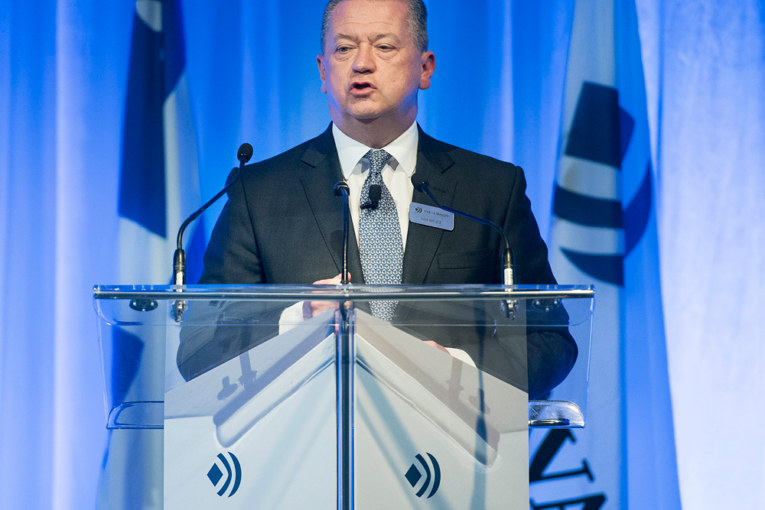
SNC-Lavalin Group Inc. chief executive Neil Bruce fumed on Friday about the unfair treatment of his company in his first comments since questions arose earlier this month about whether the Montreal firm received special treatment in its longstanding criminal prosecution.
Bruce said SNC employees have met with numerous provincial and federal politicians to talk about the company’s criminal prosecution — on charges it paid tens of millions in bribes to Libyan officials — but he explicitly denied any wrongdoing.
“Our belief is our employees are being used as a puck in a political hockey game,” Bruce said during a conference call to announce fourth quarter financial results. “We don’t deserve it and we’ve had enough.”
The bribery charges date back to between 2001 and 2011, but a conviction could bar SNC from bidding on federally funded projects in Canada and possibly other jurisdictions — which some analysts believe accounts for 15 per cent of its revenues. As one of the few large Canadian construction companies in Canada, that prospect has raised concerns as Prime Minister Justin Trudeau prepares to embark on an ambitious infrastructure program across the country.
The matter unexpectedly rose to national attention earlier this month after the Globe and Mail reported that the Prime Minister’s Office pressed former attorney general Jody Wilson-Raybould to consider a settlement. Wilson-Raybould subsequently resigned from cabinet, as did Prime Minister Justin Trudeau’s top aide and principal secretary Gerald Butts.
During the conference call, Bruce made clear a settlement now appears out of the question and acknowledged a board committee is studying possible sales or transactions “to minimize the worst consequences” from the criminal case.
“That’s certainly at their discretion,” he said. “But frankly, it doesn’t look like that today.”
Bruce said the timeline of any transaction depends on what happens in the criminal case, predicting legal proceedings could last a decade.
“They don’t penalize until you’re found guilty,” he said, adding the company can still bid on federal projects in Canada. “They don’t penalize when you’re still innocent.”
The Financial Post reported Friday that even if the company faces a conviction, proposed changes to government policy could mean it avoids any suspension from bidding on federal projects.
For much of the conference call, however, Bruce and his deputies focused on the growing storm of troubles at SNC, which cut its dividend for the first time since 1992, from 27 cents per quarter to 10 cents. That should allow the company to maintain its investment grade rating and continue paying down its $2.3 billion of recourse debt even while it faces the prospect of a roughly $346-million loss on a mining project it is building for a client in Chile.
The diplomatic rift between Canada and Saudi Arabia has also cast doubts on SNC’s ability to win future work in the oil-rich Middle Eastern country where it has thousands of employees.
Its stock dropped just over three per cent in Toronto to $34.71 — a 42 per cent drop since it traded at $60.47 in June.
Many analysts say the company’s low stock price does not account for the value of all its assets.
Derek Spronck, of RBC Domninion Securities Inc., wrote on Friday morning that the company’s results were “not as current sentiment would suggest.”
“There remains lots of challenges ahead for SNC, but none of which we would view as insurmountable and more than reflected in the current share price,” Spronck wrote.
Bruce bemoaned the overhang in the company’s stock price and said recent events have overshadowed the good news, such as a $14.9 billion backlog of work it carries into 2019 and the fact that SNC has $634 million in cash on its books and no need to raise equity.
Still, recent weeks have been difficult for everyone at SNC, Bruce said. Even while saying the company is confident it will emerge successful without a settlement, he used the opportunity to plead the logic of sparing the company from the lengthy court process.
“We believe the public interest would be served through a remediation agreement,” he said, adding, “I have to ask if this is fundamentally fair.”
Despite talking about sales of certain segments, Bruce reiterated that his company is still focused on growing its business in Canada.
“We’ve got plenty of opps to grow the business outside Canada,” he said, “but we’re also committed to the Canadian market and our Canadian employees as well.”
• Email: [email protected] | Twitter: GabeFriedz
You can read more of the news on source
